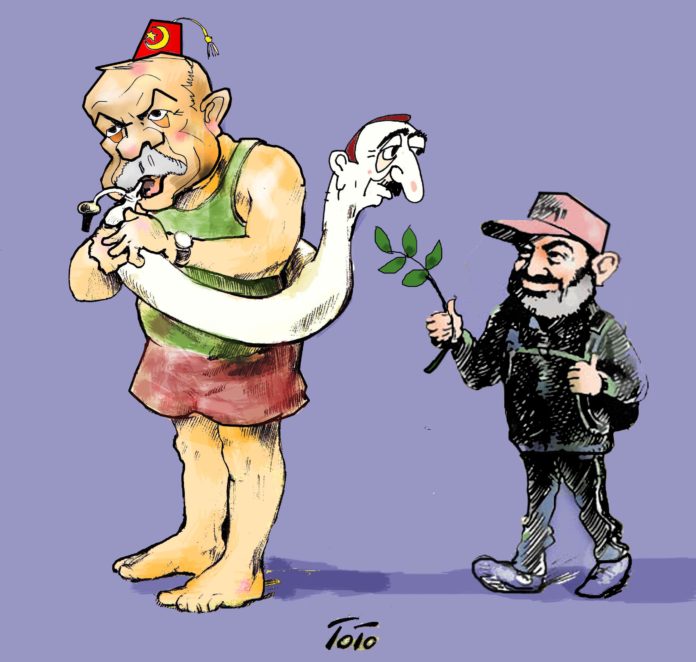For several months now, representatives of Armenia’s ruling Civil Contract Party have been making only indirect references and avoided direct questions about the position and the intention of the government regarding the future of Nagorno Karabakh. Finally, April 13 became the day of reckoning when Prime Minister Nikol Pashinyan took the podium at parliament, and revealed the entire inconvenient truth about Karabakh in a long and self-flagellating speech.
In fact, he only detonated the bombshell that had been anticipated for a long time.
These revelations came on the heels of a flurry of diplomatic activity, which included a face-to-face meeting between Pashinyan and Azerbaijan President Ilham Aliyev in Brussels on April 6, mediated by the President of the European Council Charles Michel. At the conclusion of that summit, the three participants issued separate but identical statements, from which any reference to Karabakh was conspicuously absent.
Exacerbating worries in Armenia was President Aliyev’s statement that Armenia had given in on its position on the issue of Karabakh’s status. He specifically added that Armenia was ready to recognize Azerbaijan’s territorial integrity, including Karabakh as a part of that territory. He actually said that Armenia is renouncing territorial claims “in Azerbaijan.”
Therefore, when Pashinyan spoke at the parliament and revealed the entire truth, the bombshell, while anticipated, triggered a wave of anger and confusion in Armenia and in Karabakh. Vitally important is that the speech brought into public view the divide that had been simmering for months between Armenia and Karabakh, at a moment when unity is most needed. It also intensified divisions between the government and the opposition, to the delight of the leadership in Baku. Armenia’s civil society fragmented rather than consolidated around a unified national agenda.
In his long and impassioned speech, Pashinyan developed three crucial themes: a) his share of responsibility in the defeat; b) the conditions set by the international community for Armenia and c) his plan to open the path towards an era of peace in the region.










